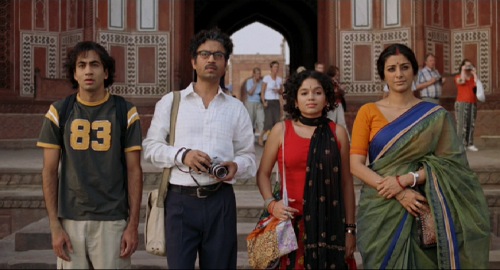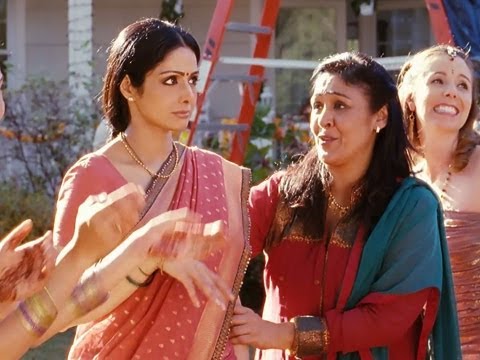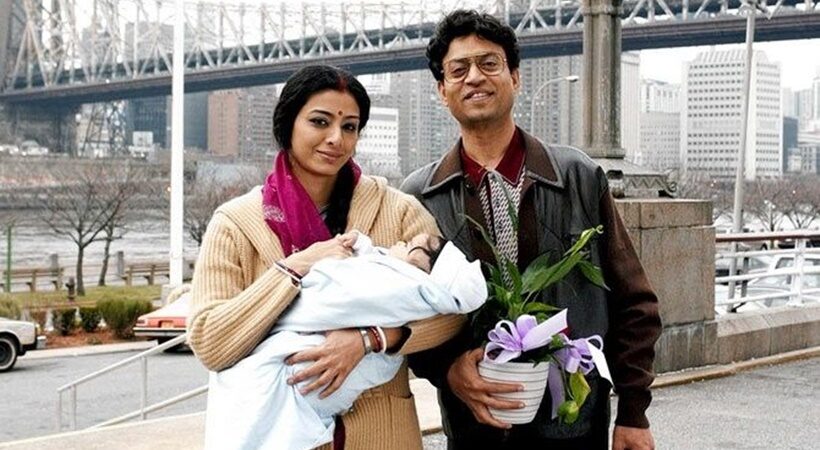The mainstream Bollywood movies are an integral part of the lives of diasporic Indians that help them connect with their homelands. Specifically, the diasporic movies revolving around the stories of Indian immigrants. However, the rigid, hegemonic and patriarchal portrayal of women is a norm in these affairs. The trope of ‘naive’ NRI moms, who adhere to the traditional Indian values and customs, is overtly showcased and normalized in mainstream movies. Simultaneously, diaspora is portrayed as a means of escape for women, i.e., diaspora is located as a more ‘liberalized’ space where the possibility of change exists. A distinct colonial apprehension of the binary between the ‘traditional’ Indian values and ‘liberal’ Western values is constructed through this.
Read More: Bigg Boss Telugu 5: From Ravi Kiran to Lahari Shari, Host Nagarjuna Locks 19 Contestants In BB House
The socio-psychological impact that movies have as a medium connecting their audience at different levels necessitates the need for critique. The increased representation of the West and hyphenated identities in the Bollywood movies escalate the need to question the construction of this dichotomy. Moreover, imposed representation of the emigrant mothers as ‘naive’ with not so ‘liberalized’ perspectives towards life against their Westernized NRI kids has become a normalized trope in these movies. The quintessential Indian housewives who uphold their Indian tradition and customs and are then compelled to adapt to their new surroundings constitute most of the diasporic Bollywood movies. The glorification of the idea of liberation through their adaptation to the Western culture explicates the construction of binary, where one culture overpowers the other.
Most of the acclaimed Bollywood movies narrate their stories through this trope of a naive NRI mom as a representational character to establish the colonial construction of the power hierarchy which overpowers Indian culture. Indian culture is subsided by its portrayal as an unachievable longing of the NRI moms. Some of such movies are listed below.
Mitr, My Friend (2002)
As represented by Revati in her directorial debut, the mother-daughter duo can be read along with the normalized depiction of the NRI mother as a ‘naive’ character, who upholds her Indian traditional values against the ‘liberalized’ culture of her Indian-American daughter. The movie tells the life of Lakshmi, who appears to be a high caste Tamilian, and her struggles to find a space in the new land. Lakshmi is a ‘typical’ South Indian girl who is uprooted to the USA after marriage. She is the meek and docile wife who is shown to be rooted in the patriarchal hegemony of Indian culture.

On the other hand, Divya, her daughter, is the westernized NRI kid who is tired of her mother’s ‘rigid’ perspectives. The movie develops through this binary of Indian culture against the Western. Lakshmi’s insecurities with her Westernized daughter add to the trope of a typical NRI mom. The movie focuses on ‘undeveloped’ Lakshmi, who finds her companionship with an unknown friend as an opportunity to recreate herself as an independent woman in a diasporic space.
Namesake (2006)
The movie revolves around the story of Ashoke and Ashima, who are Indian emigrants in New York, and their Indian-American children. Ashima Ganguly, a doting mother, is another cliche portrayal of an NRI mom who wants her children to appreciate Indian culture. The movie directed by Mira Nair has several instances of Ashima holding onto her ‘Indianness’. Ashima teaching her children to address the elders as mashis and meshos and adhering to the Bengali style of cooking and Bengali songs are some of the instances the director uses to exemplify Ashima’s longing for her motherland. The movie also explicates the portrayal of the ‘naïve’-ness of a typical Indian girl in different instances. Ashima admits to Ashoke of her stepping into his shoes on their engagement day as it was possibly the closest thing she had experienced to the touch of a man.

The dichotomy between the cultures is represented through the two generations of immigrants in the movie. Gogol and Sonia, who are Indian-American children, are more adapted to the westernized lifestyle, which their mother, Ashima, has not yet embraced. Her nostalgia and longing for the Bengali tradition extend the naive version of an NRI mom. The movie is an onscreen adaptation of the Pulitzer Prize winner Jhumpa Lahiri’s book bearing the same title.
English Vinglish (2012)
Sashi, the central character of the movie, who resides in India, is presented as an uneducated and conservative woman. Though she owns a small business selling laddoos, an Indian sweet, she is neglected by her daughter due to her limited English proficiency. She has always been the center of humiliation for her daughter.

The dichotomy between Indian and Western culture is established between the Indian mother, Shashi, and her NRI sister, Sujatha, in the movie directed by Gauri Shinde. With her excellent English language proficiency, Sujatha, who is working in a reputed firm abroad, is well accepted by Shashi’s daughter.
The movie locates diaspora as a space that enables Shashi to empower herself after the exposure to the United States. Shashi, who was isolated and ignored within her family, finds acceptance in her new location. The English language is portrayed as a tool of empowerment in the movie. The movie did not take in the stereotypical representation of the ‘naive’ NRI mother, however, established a stark binary between the ‘traditional’ Indian culture and ‘liberal’ Western culture.



















